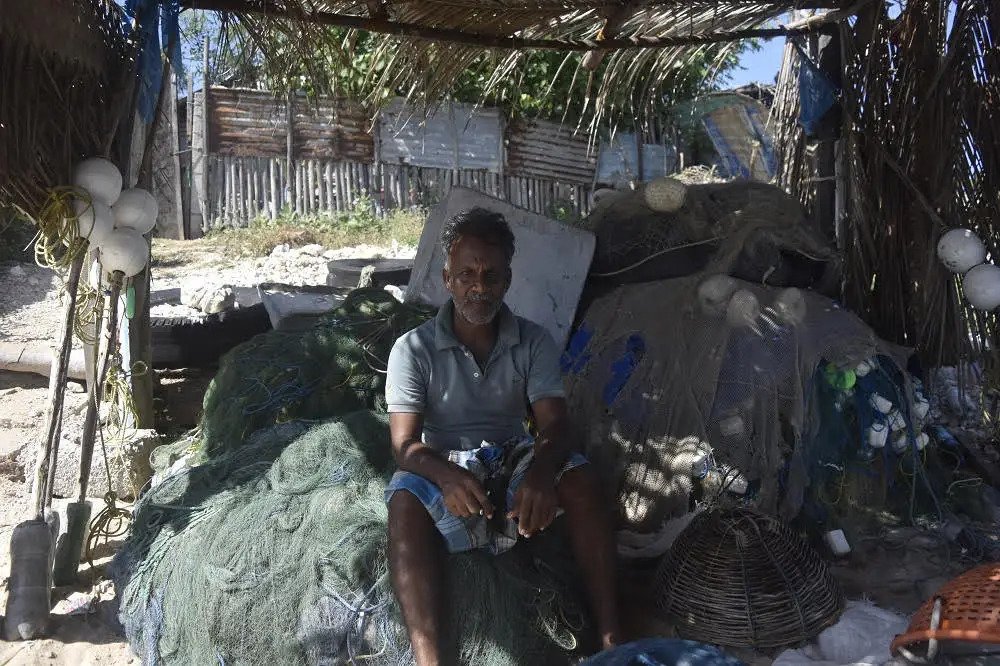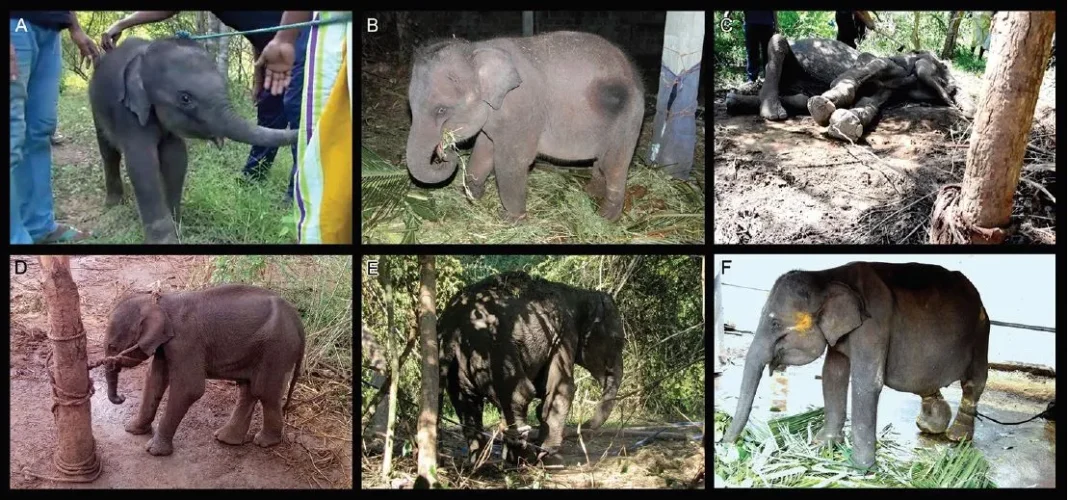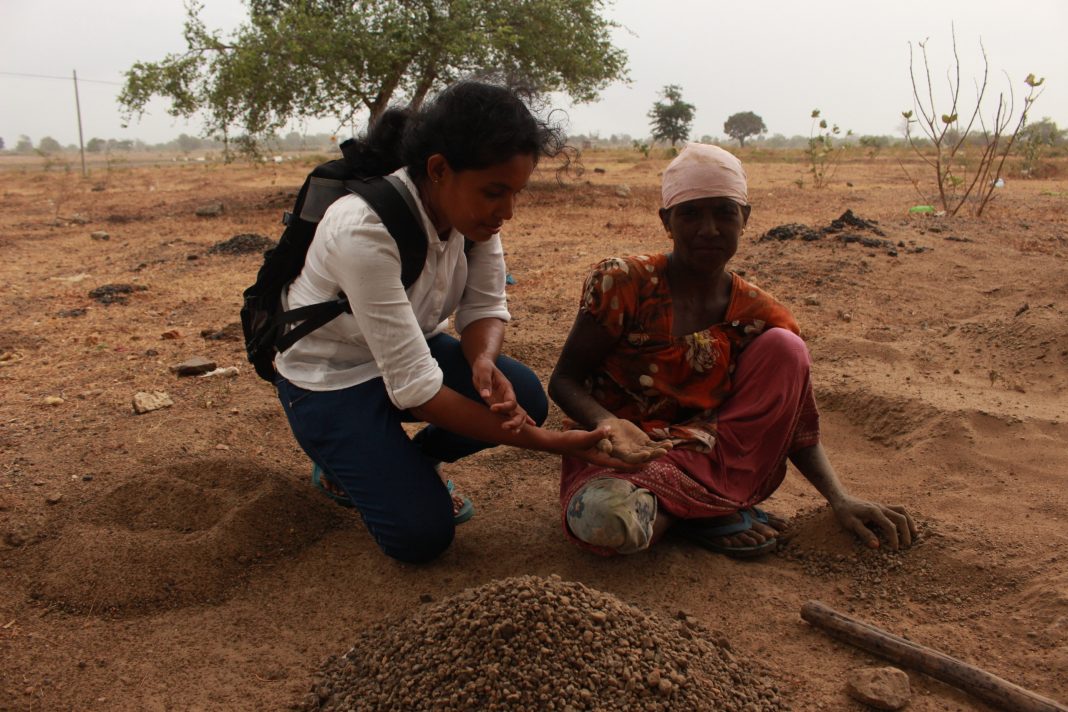From January 2021 to February 2022, a small group of Sri Lankan journalists dug into under-reported environmental issues in Sri Lanka, with EJN’s support.
The effort was led by EJN’s media grantee, the Center for Investigative Reporting (CIR), Sri Lanka’s first investigative journalism center aimed at promoting excellence in investigative journalism within Sri Lanka and South Asia.
Entitled ‘Stories from the Margins,’ this project offered fellowships to five journalists, launched Sri Lanka’s first bilingual environmental content website, the BufferZone.lk, convened three discussions with experts from the environmental field and three public discussions to engage with the public.

The selected reporters unearthed issues related to human-elephant conflict (stories can be read here and here) to growing concerns over the accumulation of Covid-related PPE waste, to the displacement of indigenous communities and forest encroachment. Journalists reported on how Indian trawlers are affecting Sri Lanka’s northern fishing community and marine ecosystems, and, in an in-depth cross-border effort, how illegal wildlife trade thrives between India and Sri Lanka.
The youngest journalist involved in the project was Thameenah Razeek (24), a reporter with Ceylon Today, a Colombo-based English publication. “As a news features writer, I was not exposed to investigative reporting. I have not had to rewrite a story pitch, work on multiple drafts or create lists of sources for interviews beforehand,” she said. “The fellowship taught me how to probe a specific issue in a systematic manner and benefit from continuous mentoring to mold the story.”
She says the CIR fellowship helped her learn how to gather and analyze information to ‘uncover’ something in the public interest. “The research element was huge and so was the legwork. It’s been a huge learning experience,” she added, describing the experience as a “career milestone.”
Another fellow, Malaka Rodrigo, is an award- winning environmental journalist who regularly contributes science and environment reports to both local and foreign media outlets. This was the first time he took on an international collaboration to unearth Sri Lanka’s emerging status as an illegal wildlife transit hub. “It was both a challenge and an opportunity for me to try my hand at two international collaborations, ensuring that each story accommodated perspectives from two countries and identified common links in an authentic manner,” he said.
Besides the opportunity to build his skills as a journalist, Rodrigo said the biggest incentive was to discover the impact of in-depth storytelling. “There have been queries for follow-ups on my stories by foreign journalists and global media outlets. I have had public officials seeking my research support to gather more information on wildlife crimes. The stories demanded a response from the authorities, and they could not deny the hard evidence in my reports,” he said.
Through a series of webinars or “GreenPoint discussions”, the EJN-supported project also helped build greater connectivity between the scientific and journalistic communities in Sri Lanka. “We created a way for journalists to connect with researchers, to discuss and debate issues, understand perspectives and learn how to communicate science better,” said Kamal Liyanage, who managed the initiative for CIR.
For their part, the scientific experts, drawn from the fields of climate science, biology, hydrology and ecology, expressed interest in sharing their expertise with journalists to help improve the standards of environmental reporting in Sri Lanka.
Over another series, titled Green Dialogues, the Center led discussions on pressing issues such as the pandemic’s impact on Sri Lanka’s environment, the management of human-wildlife conflict and the impact of large-scale infrastructure development projects.
To better understand the status of environmental reporting in Sri Lanka, CIR produced a report on how to improve environmental media coverage and journalism standards in the country. This capsule report is expected to be submitted to the Ministerial Consultative Committee on Environment in Sri Lanka’s Parliament shortly.
As part of the initiative, CIR also launched Sri Lanka’s first ever bilingual environmental news portal, The BufferZone, to create awareness on critical environmental issues in both Sinhala and Tamil, offering global knowledge to local audiences through translated media content and original reporting.
“CIR’s effort to produce stories that are under-reported or neglected in Sri Lanka has set an example in environmental reporting in the country,” said Ramesh Bhushal, EJN’s senior South Asia coordinator.
Learn about other initiatives supported by EJN’s Asia-Pacific project here.
Banner image: Elephant calves that were taken from the wild / Credit: Sajeewa Chamikara.




